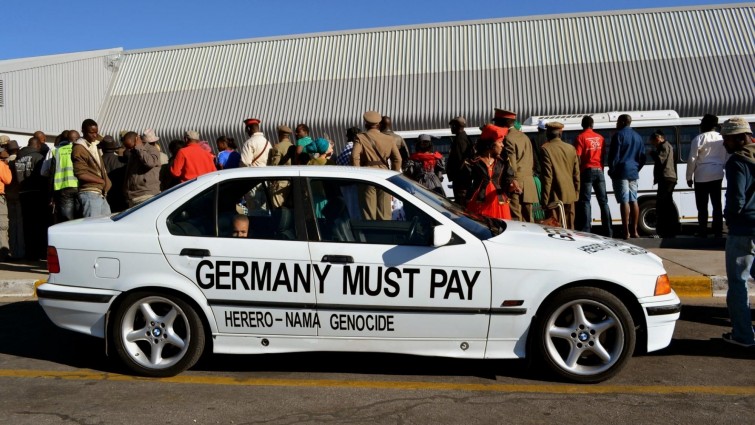
There has been news that Germany and Namibia have discreetly organized a meeting in Berlin at the end of September regarding the 1904-1908 Herero and Nama genocide accusation made against Germany. The conduct Germany has displayed during the negotiation process it has been conducting with Namibia clearly shows the double standard it has been using in the genocide debates for the sake of its own interests. We have a previously published an article on this subject,[1] but it will be useful to touch upon this subject again.
The international reaction to the Holocaust carried out by Germany against the Jews during World War Two became the main foundation for the signing of the 1948 United Nations Convention on the Prevention and Punishment of the Crime of Genocide. However, many years before Germany carried out the Holocaust, which is universally classified as a genocide, it perpetrated another systematic extermination campaign. Between the years 1904-1908, in the lands belonging to today’s Namibia, an extermination order (Ger. Vernichtungsbefehl)[2] was issued against the Herero and Nama tribes that had rebelled against the German colonial administration. Accordingly, these tribes were subjected to a systematic extermination campaign.
At the present time, the people of Namibia characterize these events that occurred between 1904-1908 as genocide. The people of Namibia also demand from Germany that it recognizes these events as a genocide, apologizes for these events, and pays reparations for them.[3] Namibia and Germany are carrying out a negotiation process on how these events should be defined and how the procedure should work. Regarding this negotiation process, a meeting has been organized most recently in September, as mentioned above.
Oddly, except for one source,[4] there was almost no mention of this meeting in the German media. The said single source explained that the German government did not want to make any statements regarding this negotiation process to the public. To the German government’s discontent, information on the meeting was shared with the public by the Namibian delegation.[5]
For Germany, who is deeply ashamed of the Holocaust, the genocide accusation from Namibia is very disturbing. This is so because Germany’s history is already stained by genocide, and it is now in danger of being stained once again by Namibia’s accusation. Beyond the shame aspect, the amount of reparation demanded is also worrying Germany. The amount demanded is stated to be 400 billion Namibia Dollars (25 billion Euros or 30 billion US Dollars).[6] For these reasons, Germany is trying to keep the issue as hidden as possible, carrying out meetings with Namibia without informing the outside world, and aiming to end these accusations by giving very significant developmental aid to Namibia (instead of paying reparations). Thus, Germany is the country that has provided the most amount of developmental aid to Namibia and has supplied aid worth 800 million Euros up until now.[7] Recently in September, the Namibian press has stated that Germany will provide aid worth 133,5 million Euros to Namibia as a part of “technical and financial cooperation projects and programs.”[8]
However, putting all these developmental aids aside, the conduct exhibited by Germany regarding the genocide accusation is causing to the negotiations between the two countries to bear no results. Germany states that calling the 1904-1908 events a genocide will only have a political quality and that such a move would not be legally binding since the 1948 Genocide Convention cannot be applied retrospectively. In this framework, Germany states that it is not possible for it to officially recognize these events as a genocide and accordingly pay reparations.[9] Even though Namibia had sent its negotiation position paper regarding recognition, apology, and reparation to Germany on July 2016, Germany has only confirmed that it has received this document and has not replied regarding the document’s actual content.[10] Namibia, meanwhile, has stated that the people of Namibia will not accept any agreement without recognition, apology, and reparation.[11]
While the Namibian government is addressing the situation with a diplomatic language, the Nama and Herero tribe representatives are using a sterner tone. Zed Ngavirue, the Namibian government’s special envoy at the negotiations, has stated that the latest meeting with Germany had passed smoothly but that no outcome had been achieved. Replying to the question "Has any progress been made?", Ngavirue stated that “Nothing is agreed until everything is agreed.”[12]
Meanwhile, the Nama and Herero tribe representatives have blamed Germany for grinding the negotiations to halt due to its conduct.[13] The tribe representatives have also stated that they are not being fairly represented in the negotiation process[14] (probably due to Germany’s interventions) and that they may demand reparations from Germany separately if they see fit.[15] Nonetheless, Prime Minister of Namibia Saara Kuugongelwa-Amadhila has stated, in order to address such concerns, that the public will be informed after the negotiations are concluded and that the people of Namibia will be consulted regarding how the reparations demanded will be distributed.[16]
As can be understood from the above, Germany, due to its conduct, is hampering the negotiation process with Namibia. In this framework, Germany should answer some questions regarding its said conduct (similar questions have been asked in our previous article):
1) In March 2016, a draft resolution was presented to the German Federal Assembly for the recognition of the 1904-1908 Events as the "Namibian Genocide", but this draft was rejected by the Assembly. However, in June 2016, the German Federal Assembly issued a resolution describing the 1915 Events as a genocide.[17] How is it that the German Federal Assembly enthusiastically issues a resolution on genocide regarding the 1915 Events (which cannot be characterized as a genocide either in legal or definitional terms), while refusing to issue a resolution on genocide for the 1904-1908 Events (which may be characterized as genocide in definitional terms)? Can it be said that this contradictory attitude reflects any goodwill or search for justice?
2) How is it that while Germany -as a country with its politicians, academics, and institutions- is insistent on calling the 1915 Events a genocide and accordingly disregarding historical facts and international law, points to the law to defend itself when the 1904-1908 Events are in question? Why is Germany acting as if it recalls the principals of law only when its own interests are in question?
3) Why has the German media, which has published on the 1915 Events due to these events being used as political material in Germany, not published the meeting between Germany and Namibia at the end of September? Why is the German public not interested in the systematic extermination campaign that the German colonial administration perpetrated against the Nama and Herero tribes during the beginning of the 20th century? Is Germany, as a country, aware of its contradictory conduct? In such a case, how logical is it for Germany to attempt to position itself on the moral high ground and to counsel Turkey on "historical justice"?
As mentioned in our previous article; “Germany will use its influence to twist and turn the strictly defined legal term ‘genocide’ according to its interests,” and seeks to “come to an agreement with Namibia that will foremost protect Germany’s interests while sidelining the Herero and the Nama tribes.”[18] The conduct Germany has displayed in the Namibia-Germany negotiations reveals that Germany is trying to buy time, and is trying to force Namibia to come to an agreement that will disregard the interests of Namibia’s own people and only suit Germany’s interests. We will continue to follow Germany’s contradictory actions in the negotiation process through a critical lens.
*Photo: Deutschlandfunk.de
[1] Mehmet Oğuzhan Tulun, “Genocide and Germany,” Center for Eurasian Studies (AVİM), Analysis No: 2017 / 3, January 10, 2017, http://avim.org.tr/en/Analiz/GENOCIDE-AND-GERMANY
[2] “Policy of Mass Killings in the Early 20th Century in Colonial Africa: The Case of the Genocide in Namibia and the Lessons Learned – Lecture Delivered by Prof. Joseph B. Diescho at Middle East Technical University and AVİM in May 2015,” (Center for Eurasian Studies (AVİM), AVİM Conference Book No. 16, May 2015), 12, http://avim.org.tr/images/uploads/Rapor/AVIM-Conference-Book-16.pdf
[3] Albertina Nakale, “Namibia: PM Allays Fears Over Genocide Negotiations,” AllAfrica.com, September 25, 2017, http://allafrica.com/stories/201709250212.html
[4] Christiane Habermalz, “Viel Druck im Kessel bei Verhandlungen mit Namibia,” Deutschlandfunk, September 30, 2017, http://www.deutschlandfunk.de/voelkermord-an-herero-und-nama-viel-druck-im-kessel-bei.1773.de.html?dram:article_id=397153&xtor=AD-252-%5B%5D-%5B%5D-%5B%5D-%5Bdlf-desktop%5D-%5B%5D-%5B%5D
[5] Erdem Güneş, “Berlin’in Soykırım Pişkinliği,” Aydınlık, October 2, 2017, https://www.aydinlik.com.tr/berlin-in-soykirim-piskinligi-dunya-ekim-2017-2
[6] Ndanki Kahiurika, “Talks smooth but no agreement – Ngavirue,” The Namibian, October 3, 2017, https://www.namibian.com.na/59940/read/Talks-smooth-but-no-agreement-%E2%80%93-Ngavirue
[7] Güneş, “Berlin’in Soykırım Pişkinliği.”
[8] Alvine Kapitako, “Germany avails N$2 billion to Namibia,” New Era, September 25, 2017, https://www.newera.com.na/2017/09/25/germany-avails-n2-billion-to-namibia/
[9] Güneş, “Berlin’in Soykırım Pişkinliği.”
[10] Ndanki Kahiurika, “Public to decide what to do with genocide reparations,” The Namibian, September 25, 2017, https://www.namibian.com.na/59581/read/Public-to-decide-what-to-do-with-genocide-reparations
[11] Güneş, “Berlin’in Soykırım Pişkinliği.”
[12] Kahiurika, “Talks smooth but no agreement…”
[13] Güneş, “Berlin’in Soykırım Pişkinliği.”
[14] Eveline de Klerk, “Genocide negotiations deceptive and undemocratic – Kooitjie,” New Era, March 27, 2017, https://www.newera.com.na/2017/03/27/genocide-negotiations-deceptive-and-undemocratic-kooitjie/
[15] Kahiurika, “Talks smooth but no agreement…”
[16] Kahiurika, “Public to decide what to do…”
[17] Ali Murat Taşkent, “German Federal Assembly’s Unfriendly Resolution Towards Turkey and Turkish People,” Center for Eurasian Studies (AVİM), Commentary No: 2016 / 33, http://avim.org.tr/en/Yorum/GERMAN-FEDERAL-ASSEMBLY-S-UNFRIENDLY-RESOLUTION-TOWARDS-TURKEY-AND-TURKISH-PEOPLE
[18] Tulun, “Genocide and Germany.”
© 2009-2025 Center for Eurasian Studies (AVİM) All Rights Reserved
No comments yet.
-
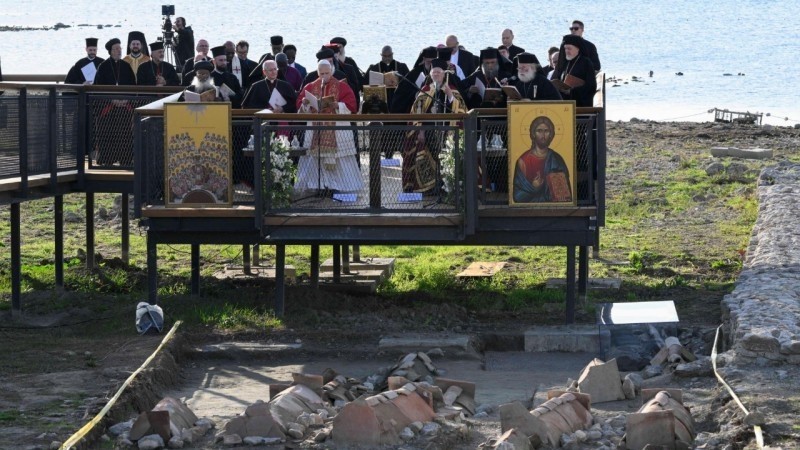 POPE LEO XIV’S NOVEMBER 2025 VISIT TO TÜRKİYE: A PUSH FOR ECUMENISM IN THE CONTEXT OF A SPIRITUAL JOURNEY
POPE LEO XIV’S NOVEMBER 2025 VISIT TO TÜRKİYE: A PUSH FOR ECUMENISM IN THE CONTEXT OF A SPIRITUAL JOURNEY
Mehmet Oğuzhan TULUN 12.01.2026 -
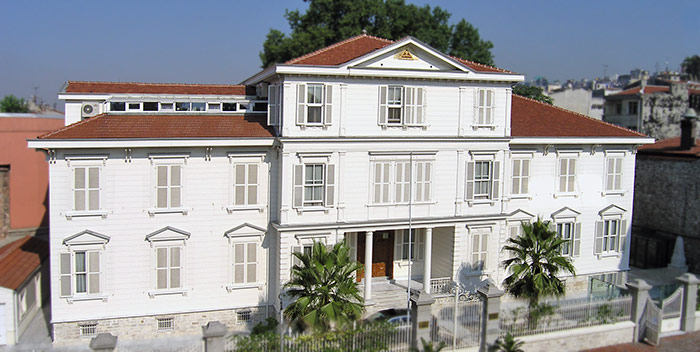 THE ELECTION PROCESS OF THE ARMENIAN PATRIARCH OF ISTANBUL HAS BEEN RESET
THE ELECTION PROCESS OF THE ARMENIAN PATRIARCH OF ISTANBUL HAS BEEN RESET
Mehmet Oğuzhan TULUN 09.05.2018 -
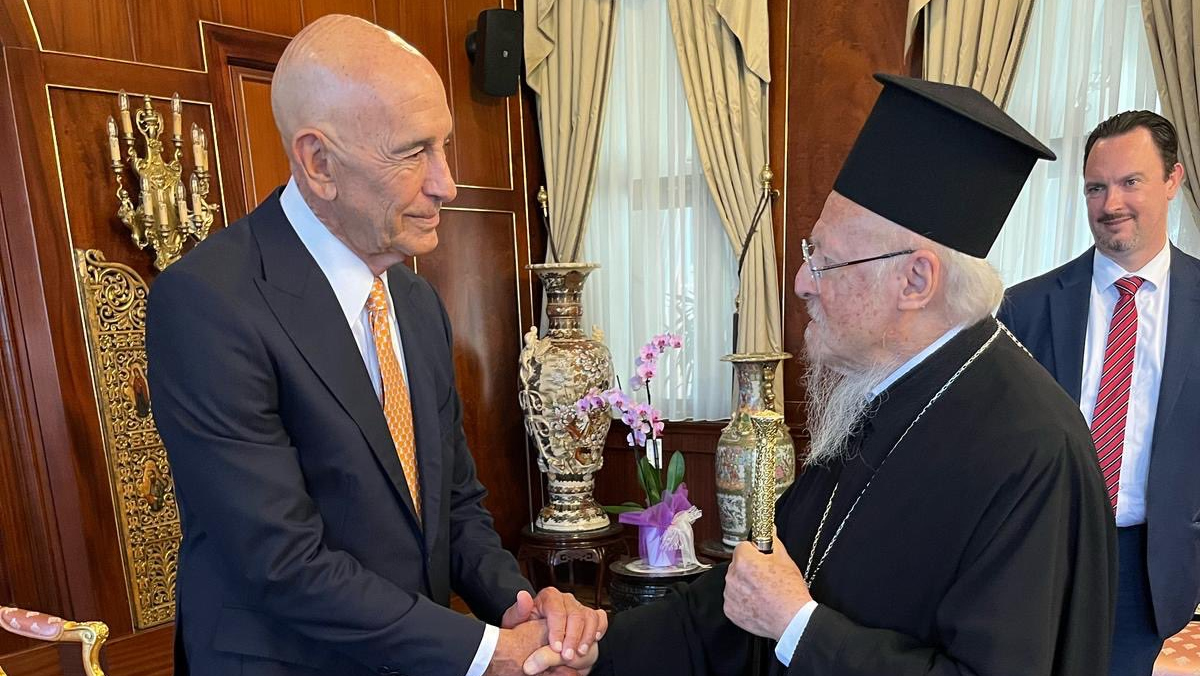 THE HARMFUL EFFECTS OF THE POLITICIZATION OF THE FENER GREEK PATRIARCHATE
THE HARMFUL EFFECTS OF THE POLITICIZATION OF THE FENER GREEK PATRIARCHATE
Mehmet Oğuzhan TULUN 03.09.2025 -
 SOME CRITICISMS REGARDING PROF. DR. ERIK-JAN ZÜRCHER’S CENTENNIAL STATEMENT
SOME CRITICISMS REGARDING PROF. DR. ERIK-JAN ZÜRCHER’S CENTENNIAL STATEMENT
Mehmet Oğuzhan TULUN 21.04.2015 -
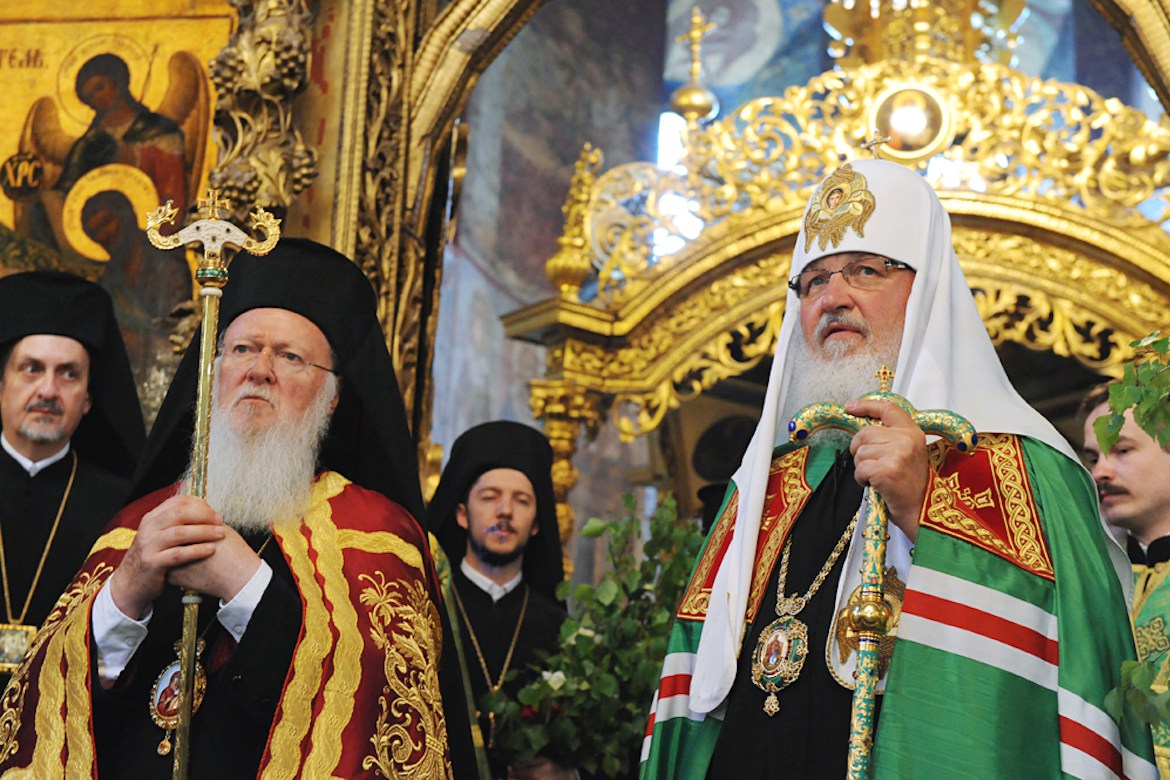 IS ECUMENISM BEING DISRUPTED IN THE CHRISTIAN WORLD?
IS ECUMENISM BEING DISRUPTED IN THE CHRISTIAN WORLD?
Mehmet Oğuzhan TULUN 24.09.2018
-
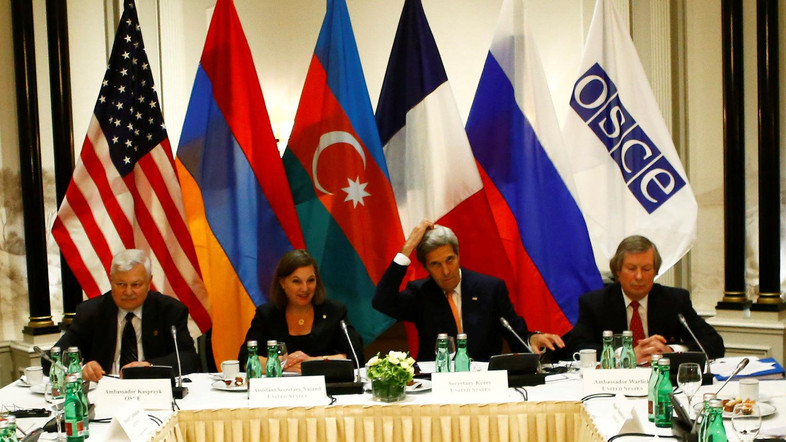 “QUIET DIPLOMACY” IN NAGORNO KARABAKH CONFLICT AND ARMENIAN ELECTIONS
“QUIET DIPLOMACY” IN NAGORNO KARABAKH CONFLICT AND ARMENIAN ELECTIONS
AVİM 24.04.2018 -
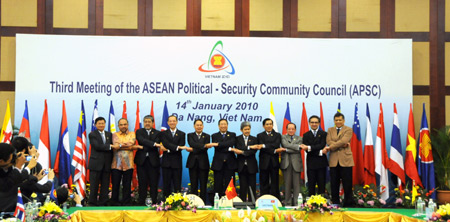 ASEAN’S DEFICIENCY IN DEALING WITH SECURITY ARENA
ASEAN’S DEFICIENCY IN DEALING WITH SECURITY ARENA
Teoman Ertuğrul TULUN 12.11.2018 -
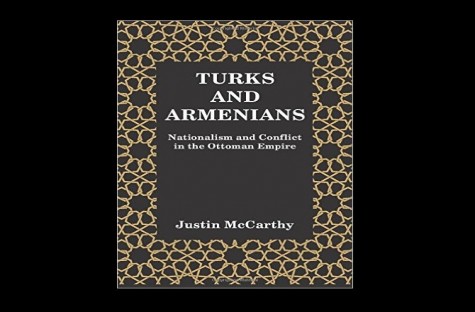 CHAPTER BY CHAPTER SYNOPSIS AND REVIEW OF TURKS AND ARMENIANS: NATIONALISM AND CONFLICT IN THE OTTOMAN EMPIRE BY JUSTIN MCCARTHY - 4
CHAPTER BY CHAPTER SYNOPSIS AND REVIEW OF TURKS AND ARMENIANS: NATIONALISM AND CONFLICT IN THE OTTOMAN EMPIRE BY JUSTIN MCCARTHY - 4
Ali Murat TAŞKENT 22.10.2015 -
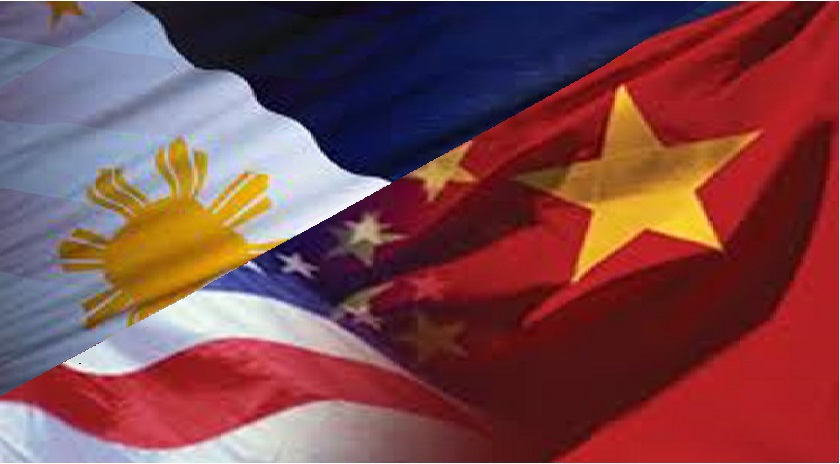 SOUL-SEARCHING IN SOUTHEAST ASIA: EMERGING RIFTS BETWEEN OLD FRIENDS AND NEW FOREIGN POLICY DIRECTIONS
SOUL-SEARCHING IN SOUTHEAST ASIA: EMERGING RIFTS BETWEEN OLD FRIENDS AND NEW FOREIGN POLICY DIRECTIONS
Teoman Ertuğrul TULUN 17.01.2017 -
 SOVEREIGNTY AND SYNERGY: INTEGRATING MONTREUX CONVENTION COMPLIANCE INTO EU BLACK SEA SECURITY ARCHITECTURE
SOVEREIGNTY AND SYNERGY: INTEGRATING MONTREUX CONVENTION COMPLIANCE INTO EU BLACK SEA SECURITY ARCHITECTURE
Teoman Ertuğrul TULUN 01.07.2025
-
25.01.2016
THE ARMENIAN QUESTION - BASIC KNOWLEDGE AND DOCUMENTATION -
12.06.2024
THE TRUTH WILL OUT -
27.03.2023
RADİKAL ERMENİ UNSURLARCA GERÇEKLEŞTİRİLEN MEZALİMLER VE VANDALİZM -
17.03.2023
PATRIOTISM PERVERTED -
23.02.2023
MEN ARE LIKE THAT -
03.02.2023
BAKÜ-TİFLİS-CEYHAN BORU HATTININ YAŞANAN TARİHİ -
16.12.2022
INTERNATIONAL SCHOLARS ON THE EVENTS OF 1915 -
07.12.2022
FAKE PHOTOS AND THE ARMENIAN PROPAGANDA -
07.12.2022
ERMENİ PROPAGANDASI VE SAHTE RESİMLER -
01.01.2022
A Letter From Japan - Strategically Mum: The Silence of the Armenians -
01.01.2022
Japonya'dan Bir Mektup - Stratejik Suskunluk: Ermenilerin Sessizliği -
03.06.2020
Anastas Mikoyan: Confessions of an Armenian Bolshevik -
08.04.2020
Sovyet Sonrası Ukrayna’da Devlet, Toplum ve Siyaset - Değişen Dinamikler, Dönüşen Kimlikler -
12.06.2018
Ermeni Sorunuyla İlgili İngiliz Belgeleri (1912-1923) - British Documents on Armenian Question (1912-1923) -
02.12.2016
Turkish-Russian Academics: A Historical Study on the Caucasus -
01.07.2016
Gürcistan'daki Müslüman Topluluklar: Azınlık Hakları, Kimlik, Siyaset -
10.03.2016
Armenian Diaspora: Diaspora, State and the Imagination of the Republic of Armenia -
24.01.2016
ERMENİ SORUNU - TEMEL BİLGİ VE BELGELER (2. BASKI)
-
AVİM Conference Hall 24.01.2023
CONFERENCE TITLED “HUNGARY’S PERSPECTIVES ON THE TURKIC WORLD"









